Do benefit-risk analysis before giving Janssen/J&J COVID-19 vaccine, WHO warns
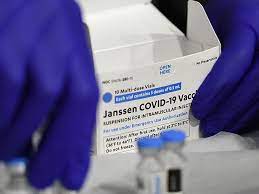 The World Health Organisation has advised countries to assess the benefits and risks of the newly approved Janssen COVID-19 vaccine before administering it on their populations.
The World Health Organisation has advised countries to assess the benefits and risks of the newly approved Janssen COVID-19 vaccine before administering it on their populations.
The National Agency for Food and Drug Administration and Control on Tuesday approved the Janssen vaccine for the management of COVID-19 in the country; even as Johnson & Johnson had announced same day that it was collaborating with Telangana, India-based Biological E to produce the ‘Janssen/J&J COVID-19 vaccine’ in India.
Eating good foods will boost your immune system against infectious diseases
 Nutrition and health experts have underscored the importance of nutrition in boosting immune systems to fight infectious diseases and viruses like the COVID-19.The experts said this on Wednesday at a webinar on the maiden Dairy Day, with the theme ‘Dairy nourishment to support healthy living.’
Nutrition and health experts have underscored the importance of nutrition in boosting immune systems to fight infectious diseases and viruses like the COVID-19.The experts said this on Wednesday at a webinar on the maiden Dairy Day, with the theme ‘Dairy nourishment to support healthy living.’
The News Agency of Nigeria reports that the event was initiated to raise awareness about the nutritious value of dairy products and how daily consumption can help in achieving optimal health.
National Assembly raises concern over Nigeria’s high death rates
 The National Assembly on Thursday says that Nigeria’s mortality indices remain extremely high despite the huge resources sunk into the health sector over the years by government at all levels. The federal parliament accordingly called for prioritisation of health security in the country on the template of the Universal Health Coverage.
The National Assembly on Thursday says that Nigeria’s mortality indices remain extremely high despite the huge resources sunk into the health sector over the years by government at all levels. The federal parliament accordingly called for prioritisation of health security in the country on the template of the Universal Health Coverage.
The nation’s apex legislative institution expressed the fear that health security in the country will continue to be a mirage if the Federal Government continues to hold on exclusively to the National Health Insurance Scheme.
Untreated fat necrosis can lead to death, physician warns
 A Specialist Registrar and Associate Fellow in Anaesthesia & Critical Care at the Irrua Specialist Teaching Hospital, Edo State, Dr. Julian Ojebo, says if left untreated, fat necrosis can become gangrenous and lead to death. Ojebo, however, said that, for some people, fat necrosis can dissolve without any treatment.
A Specialist Registrar and Associate Fellow in Anaesthesia & Critical Care at the Irrua Specialist Teaching Hospital, Edo State, Dr. Julian Ojebo, says if left untreated, fat necrosis can become gangrenous and lead to death. Ojebo, however, said that, for some people, fat necrosis can dissolve without any treatment.
Speaking with PUNCH HealthWise, he said that fat necrosis usually occurs when there are surgeries that have to do with soft tissues such as aesthetic surgeries like tummy tuck, breast lift, breast augmentation, breast reduction, thigh reduction, mother-arm fat reduction, and Brazilian butt lift.
As cervical cancer rates drop, other HPV cancers rise, study finds
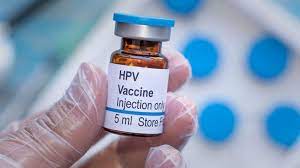 Cervical cancer rates have dropped one percent annually since 2001, likely due to clear screening and HPV vaccination guidelines, while other HPV-related cancers without standardised screening guidelines are on the rise, according to research set to be presented at the 2021 American Society of Clinical Oncology Annual Meeting.
Cervical cancer rates have dropped one percent annually since 2001, likely due to clear screening and HPV vaccination guidelines, while other HPV-related cancers without standardised screening guidelines are on the rise, according to research set to be presented at the 2021 American Society of Clinical Oncology Annual Meeting.
The finding was published online by the Becker’s Hospital Review — a hospital magazine for hospital business news and analysis for hospital and healthcare system executives.
‘Suturing after episiotomy is corrective repair, not vagina tightening for male sexual pleasure’
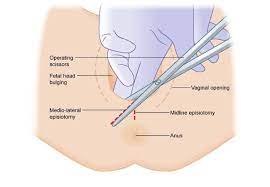 Maternal and child health experts say that, contrary to erroneous belief among some people, suturing of the vagina after an episiotomy is a corrective repair and not a cosmetic surgery to tighten the vagina for male sexual pleasure. The experts warn physicians to abstain from unprofessional practice of sewing up women too tightly in the name of post-episiotomy suturing.
Maternal and child health experts say that, contrary to erroneous belief among some people, suturing of the vagina after an episiotomy is a corrective repair and not a cosmetic surgery to tighten the vagina for male sexual pleasure. The experts warn physicians to abstain from unprofessional practice of sewing up women too tightly in the name of post-episiotomy suturing.
The experts say that it is wrong and inappropriate for healthcare workers to suture a woman tightly after an episiotomy, considering that the incision is generally between three and four centimeters in length.
‘Patients have right to know names of drugs prescribed by doctor and likely side effects’
 Medical experts have said that it is wrong and totally unacceptable for doctors not to tell their patients the name of the medications prescribed for patients or what the drugs are expected to treat.
Medical experts have said that it is wrong and totally unacceptable for doctors not to tell their patients the name of the medications prescribed for patients or what the drugs are expected to treat.
According to the physicians who spoke with PUNCH HealthWise, a doctor has a responsibility to tell the patient the name of the drug and the side effects, if any. Speaking in an interview with PUNCH HealthWise, a Public Health Physician, Dr. Austine Aipoh, urged doctors to be open to their patients, stressing that the age of hiding things from patients is over.
Why breast milk quality varies among nursing mothers, according to paediatricians
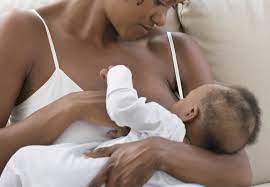 A Consultant Pediatrician and Head of Department at the Massey Street Children Hospital, Lagos, Olanike Olutekunbi, says the breast milk of a mother who delivers prematurely differs from that of a mother who delivers at term.
A Consultant Pediatrician and Head of Department at the Massey Street Children Hospital, Lagos, Olanike Olutekunbi, says the breast milk of a mother who delivers prematurely differs from that of a mother who delivers at term.
According to her, mothers’ breast milk varies based on the timing of birth and it continues to change throughout breastfeeding period to meet the needs of the growing child. This corroborates a 1981 study published online by PubMed, a free search engine of references and abstracts on life sciences and biomedical topics.
FG warns nursing mothers, pregnant women against patronising quacks for health care
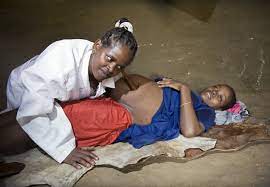 The Federal Government has warned Nigerians, especially nursing mothers and pregnant women, against patronising quack nurses for their health care. The FG also urged nursing mothers and pregnant women to embrace Primary Health Centres built in their domains to avert needless death.
The Federal Government has warned Nigerians, especially nursing mothers and pregnant women, against patronising quack nurses for their health care. The FG also urged nursing mothers and pregnant women to embrace Primary Health Centres built in their domains to avert needless death.
A statement on Tuesday said the Senior Special Assistant to the President on Sustainable Development Goals, Joke Orelope-Adefulire, made the call in Lagos at the inauguration of the Iru Estate Primary Health Centre. She also asked Nigerians to be wary of the kind of people they consult for medical attention.
Africa Likely To Miss September Vaccination Deadline: WHO
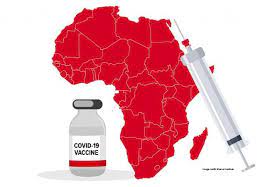 Nearly 90 percent of African countries will miss a target of vaccinating a tenth of their population by September unless they urgently receive more than 200 million jabs, the WHO warned Thursday. “Only seven African countries (out of 54) are likely to reach the target,” the World Health Organization’s director for Africa, Matshidiso Moeti, said in an online briefing.
Nearly 90 percent of African countries will miss a target of vaccinating a tenth of their population by September unless they urgently receive more than 200 million jabs, the WHO warned Thursday. “Only seven African countries (out of 54) are likely to reach the target,” the World Health Organization’s director for Africa, Matshidiso Moeti, said in an online briefing.
At least 225 million jabs are urgently required if the majority of the countries are to meet the deadline, she said. Africans have received less than one percent of the over 2.1 billion doses administered globally, according to the WHO.






